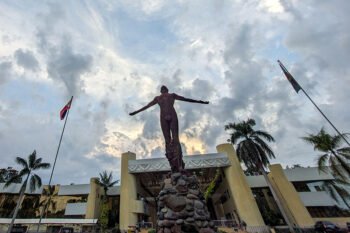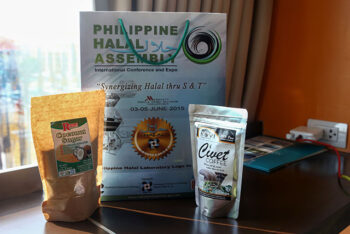
CAGAYAN DE ORO CITY (MindaNews/ 12 May) – St. John Vianney Theological Seminary (SJVTS) in this city will have its fourth Sunday of offering a Community Pan-TREE this week. This was launched on April 25, 2021 at Our Lady of Fatima Parish Church in Camaman-an. This will culminate on the Sunday (May 23) of the Laudato Si’ Week celebration.
This ecological initiative was inspired by the “bayanihan spirit” operating in various community pantries that erupted in many parts of the country. The spirit of solidarity, as manifested in the sharing of food to help the materially poor at this time of pandemic, moved the SJVTS community to creatively promote and replicate it locally.
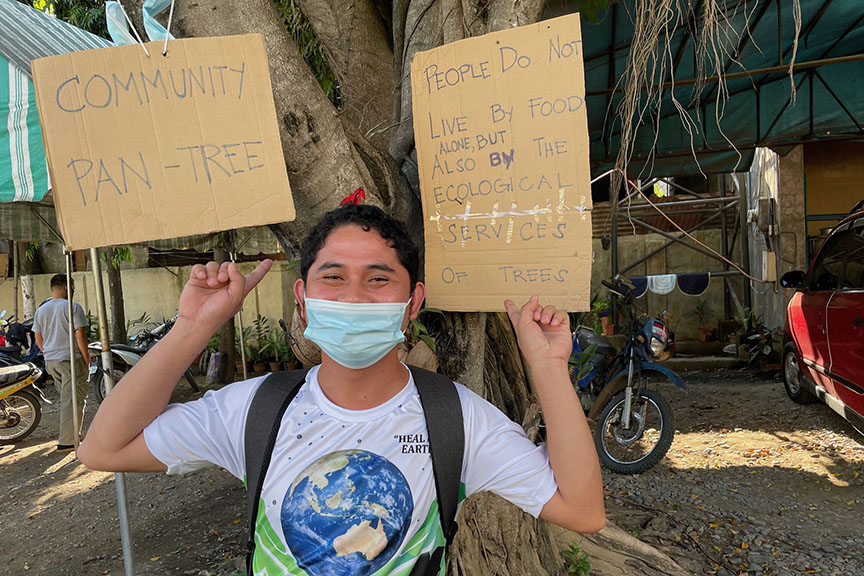
While reflecting on how the poor could survive at this time of pandemic, an ecological insight came to me: people do not live by food alone but also by the ecological services of trees. This pushed me to convince the SJVTS community to put up an ecological pantry that would go beyond the sharing of food in times of pandemic. We call this Community Pan-TREE for two simple reasons: first, it shares “PAN” (Visayan term for bread) to re-affirm that food is necessary for our survival; second, it offers TREE to recognize our need for the ecosystem services of forest.
Sustaining Our Community Pan-TREE
Community Pan-TREE offers bread and native tree seedlings to people who want to plant them. In exchange, we encourage them to share their native tree seedlings with others. However, those who have no seedlings to share could donate any amount which we can use to buy more bread and native tree seedlings.
Our Pan-TREE started by disposing our very own precious Kamagong/Mabolo (Velvet apple) seedlings. Due to people’s support, we were able to offer more species such as Dao (Pacific Walnut), Tugas (Molave), Kalingag (Cinnamon), and Bagras (Eucalyptus).
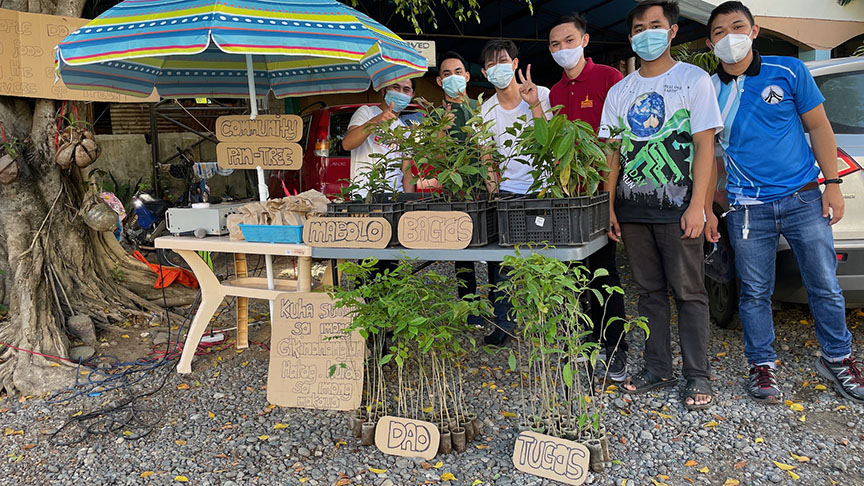
It is easy to share bread because there are many bakeries around the city. To share native tree seedlings is the more challenging aspect of sustaining our operation. We encourage the tree growers, especially owners of tree nurseries, to share with us their seedlings. We hope that the Department of Environment and Natural Resources (DENR) could help us in this concern so that we can sustain our Community Pan-TREE operation.
Our Integral Response to the Pandemic
Most of the ongoing community pantries are short-term responses to food problems in times of pandemic. In a poor country like the Philippines, this is the most basic Christian response we can do. However, if we want to have a long-term and integral response to the pandemic, we need to also address the ecological causes of pandemic. As Laudato Si’ (LS) puts it: we are facing “one complex crisis which is both social and environmental. Strategies for a solution demand an integrated approach to combating poverty … and at the same time protecting nature” (LS 139).
From this perspective, Community Pan-TREE is a humble attempt to address the lacuna of the existing community pantries. Promoting a long-term and sustainable solution to the pandemic through reforestation is based on the emerging scientific analysis that the rise of many zoonotic diseases (like the COVID-19) and the decline of global forest cover are deeply linked problems.
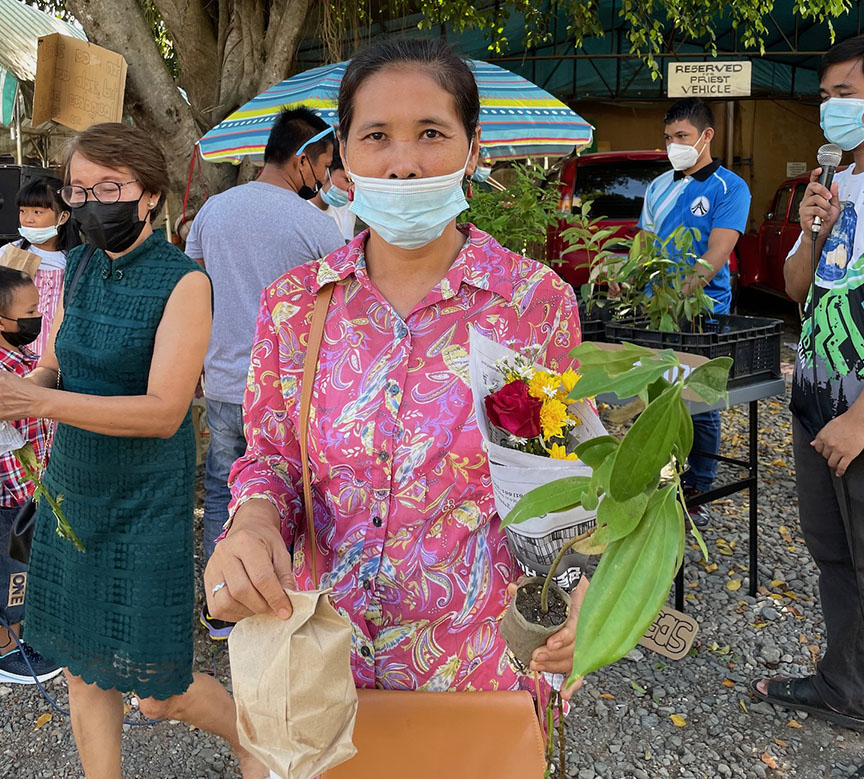
Thus, a long-term and integral response to the pandemic should include ecological solutions, such as activities that maintain the healthy ecosystem services of forest. By planting more native trees, we do not only rehabilitate the forest ecosystem that prevents the emergence of future zoonotic diseases; we also mitigate the increase of global warming.
Reforestation as Equally Important Response to the Pandemic
Sadly, many people tend to underestimate the urgency to address degrading ecological services of trees. They think that our ecological concerns could wait until the physiological needs of our stomach are satisfied. Against this unsustainable approach, it must be emphasized that our concern for the declining ecosystem services of the forest is an equally important community response to the pandemic. Reforestation activities are not just the luxury of the rich but the common concern of both rich and poor.
The bayanihan principle to “take as much as you need and give whatever you can” teaches us to be generous and selfless at this time of pandemic and climate emergency. As the theme of the commemoration of the 500 years of Christianity in the Philippines goes, we are “gifted to give.” Let us not just give PAN (i.e., food) but also TREE. It is imperative to plant native trees as many as we can. This is the main ecological message of our Community Pan-TREE.
[MindaViews is the opinion section of MindaNews. Reynaldo D. Raluto is a Roman Catholic priest of the Diocese of Malaybalay. He is the Academic Dean of St. John Vianney Theological Seminary in Cagayan de Oro where he also teaches fundamental/systematic theology and Catholic social teaching. He is the author of Poverty and Ecology at the Crossroads: An Ecological Theology of Liberation in the Philippine Context (Quezon City: Ateneo de Manila University Press, 2015). His ecological advocacy includes planting/growing Philippine native trees, mountain climbing, and defending the rights of Indigenous Peoples.]

